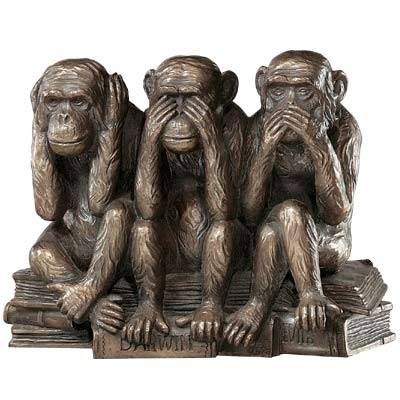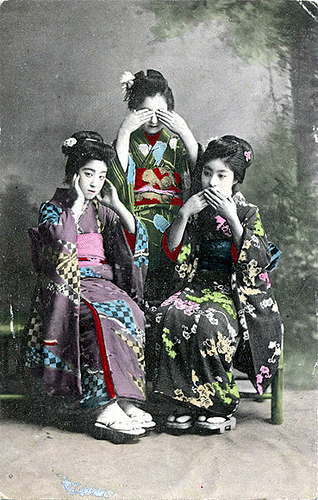
Posted on 12/05/2009 4:24:41 AM PST by markomalley
Excellent news, readers: Britain is in possession of a leader that everyone can be proud of.
Because Barack Obama, it turns out, isn't a natural born citizen of American at all. Or of any African state as others would have had you believe. He is, of course, a Brit.
Proof (in the form of an advert that ran in The Washington Times):

I quote: "Obama, the Putative US President, was born a British Subject.... and is Currently also a British Protected Person and/or a British Citizen to this Day."
Hurrah.
(Excerpt) Read more at timesonline.typepad.com ...

Kenya Sunday Standard headline — “Kenyan-born Obama all set for US Senate”
The Nigerian Observer — “Americans will today go to the polls to elect their next President with Democratic Party candidate, Senator Barack Obama largely favoured to win. The Kenyan-born Senator will…”
USAfrica — “Kenyan-born OBAMA makes history…wins presidential nomination of U. S. Democratic party; eyes on White House…”
AllAfrica.com — ” Little wonder then why Kenyan-born Barack Obama, America’s first Black President…”

GraphicGhana.com — “For Ghana, Obama’s visit will be a celebration of another milestone in African history as it hosts the first-ever African-American President on this
presidential visit to the continent of his birth.” The same article, with the same quote, appeared in ModernGhana.com.
The Ghana Times — “So far, the odds favour the once underdog in American politics, Obama, the African-American Senator from Illinois state. A Congressional Quarterly
(CQ) politics monitored on BBC put the Kenyan born American ahead of his rivel, John McCain.”
From the comment section:
(”AmericanDaughter“) NPR.org — “…She also describes the stories that have been exciting, including the U.S. presidential race of Kenyan-born Sen. Barack Obama.”
(”AmericanDaughter“) AllAfrica.com — “Kampala — Ugandans have formed a group to mobilise support for Kenyan born-senator, Barack Obama for the US presidency.” "







Article II “natural born Citizen” status must be shown as of the time of birth for a person to be eligible to be President.
The meaning of an Article II “natural born Citizen” has been addressed by various United States Supreme Court and other court cases. These cases show that the Framers did not use English common law to define what a “natural born Citizen” was but rather natural law and the law of nations which became federal common law. English common law continued to be used in the several states to provide the law on property, contracts, torts, inheritance, criminal substance and procedure, and other areas, but not the law on federal matters such as national citizenship. In defining a “natural born citizen,” these cases made specific reference to the citizenship of the child’s parents at the time of the child’s birth. These cases have defined a “natural born Citizen” as a child born in the country to citizen parents which is the definition provided by Emer de Vattel in his influential and celebrated treatise, The Law of Nations, Or, Principles of the Law of Nature, bk 1, c. 19, sec. 212 (1758 French edition) (1759 first English translation). These cases are The Venus, 12 U.S. (8 Cranch) 253, 289 (1814) (Marshall, C.J., concurring) (“Vattel, who, though not very full to this point, is more explicit and more satisfactory on it than any other whose work has fallen into my hands, says, ‘the citizens are the members of the civil society; bound to this society by certain duties, and subject to its authority, they equally participate in its advantages. The natives, or indigenes, are those born in the country, of parents who are citizens. Society not being able to subsist and to perpetuate itself but by the children of the citizens, those children naturally follow the condition of their fathers, and succeed to all their rights.’”) (emphasis in the original); Dred Scott v. Sandford, 60 U.S. 393 (1857) (which also took out of Vattel’s definition the reference to “fathers” and “father” and replaced it with “parents” and “person,” respectively, when it quoted Vattel thus: “ ‘The citizens are the members of the civil society; bound to this society by certain duties, and subject to its authority; they equally participate in its advantages. The natives, or natural-born citizens, are those born in the country, of parents who are citizens. As society cannot perpetuate itself otherwise than by the children of the citizens, those children naturally follow the condition of their parents, and succeed to all their rights.’” Again: “ ‘I say, to be of the country, it is necessary to be born of a person who is a citizen; for if he be born there of a foreigner, it will be only the place of his birth, and not his country. The inhabitants, as distinguished from citizens, are foreigners who are permitted to settle and stay in the country.’ (Vattel, Book 1, cap. 19, p. 101.)” (emphasis in original); Shanks v. Dupont, 28 U.S. 242, 245 (1830) (same definition without citing Vattel); Minor v. Happersett, 88 U.S. 162, 167-68 (1875) (same definition without citing Vattel); Ex parte Reynolds, 1879, 5 Dill., 394, 402 (same definition and cites Vattel); United States v. Ward, 42 F.320 (C.C.S.D.Cal. 1890) (same definition and cites Vattel); U.S. v. Wong Kim Ark, 169 U.S. 649 (1898) (favorably citing Minor v. Happersett).
The case of Minor v. Happersett, 88 U.S. 162 (1874) deserves special attention. It distinguished between “natives, or “natural born citizens” on the one hand and “citizens” on the other. The United States Supreme Court in Minor said that “[a]t common-law, with the nomenclature of which the framers of the Constitution were familiar,” the “natives, or natural-born citizens” were “all children born in a country of parents who were its citizens…” It added that “[s]ome authorities go further and include as citizens children born within the jurisdiction without reference to the citizenship of their parents. As to this class there have been doubts, but never as to the first….” The Court was very specific in defining “natives, or natural born citizens” as requiring not only birth in the country but also citizen parents and in stating that the Framers would have defined the terms as such. In mentioning “some authorities” going further in defining “citizens” (without reference to the citizenship of the child’s parents), the Court surely did not say that the Framers maintained any such position on citizenship. Rather, the Court was referring to “some” commentators who had made such an argument. The Court also did not say that these other “authorities” considered these other children to be “natural born citizens.”
As we can see, these cases adopted the natural law and law of nations definition of a “natural born citizen.” Reliance on this definition would have been expected, for the Framers were heavily influenced by natural law and the law of nations as expounded upon by Cicero, Grotius, Pufendorf, Burlamaqui, and their favorite, Vattel. The law of nations which was based on natural law was received and adopted by the new nation as its federal common law after the Constitution was adopted. Citizenship being a topic that affected the relations among nations, the Founder and Framers would have, as did the United States Supreme Court, looked to the law of nations as the authoritative and binding source for providing any definition of national citizenship. There is no United States Supreme Court case that to this day has changed this original definition of a “natural born Citizen” provided by Vattel and recognized and confirmed by these Supreme Court cases.
Nor did the Fourteenth Amendment change the meaning of an Article II “natural born Citizen.” It did not modify “natural born Citizen” status as originally conceived by the Framers and as confirmed by the above-cited Supreme Court cases. Article II mentions “natural born Citizen” and “Citizen” while the Fourteenth Amendment mentions “Citizen.” The Constitution must be read as one whole document and all its words must be given meaning. The framers of the Fourteenth Amendment were well aware of the Constitution using the words “natural born Citizen” and “Citizen.” Hence, when the Fourteenth Amendment says “Citizen,” it must be referring to the same “Citizen” found in Article II and in other parts of the Constitution and not to Article II’s “natural born Citizen.” The words “natural born” must be given a meaning all of their own. Also noteworthy in understanding the amendment is Rep. John Bingham, who in the House on March 9, 1866, in commenting on the Civil Rights Act of 1866 which was the precursor to the Fourteenth Amendment, stated: “[I] find no fault with the introductory clause, which is simply declaratory of what is written in the Constitution, that every human being born within the jurisdiction of the United States of parents not owing allegiance to any foreign sovereignty is, in the language of your Constitution itself, a natural born citizen. . . . ” John A. Bingham, (R-Ohio) US Congressman, March 9, 1866 Cong. Globe, 39th, 1st Sess., 1291 (1866), Sec. 1992 of U.S. Revised Statutes (1866). Additionally, we cannot simply assume that the Fourteenth Amendment amended Article II. There is simply no such evidence that the Fourteenth Amendment framers did or even intended to amend the meaning of an Article II “natural born Citizen.” Amending the Constitution is a very serious and solemn undertaking. We surely cannot have constitutional amendments by assumptions or implications. Rather, Article V of the Constitution must be followed to have any such amendments to the Constitution.
Mario Apuzzo, Esq.
BINGO!
fascinating, thanks for posting
Thanks hennie pennie.


Disclaimer: Opinions posted on Free Republic are those of the individual posters and do not necessarily represent the opinion of Free Republic or its management. All materials posted herein are protected by copyright law and the exemption for fair use of copyrighted works.